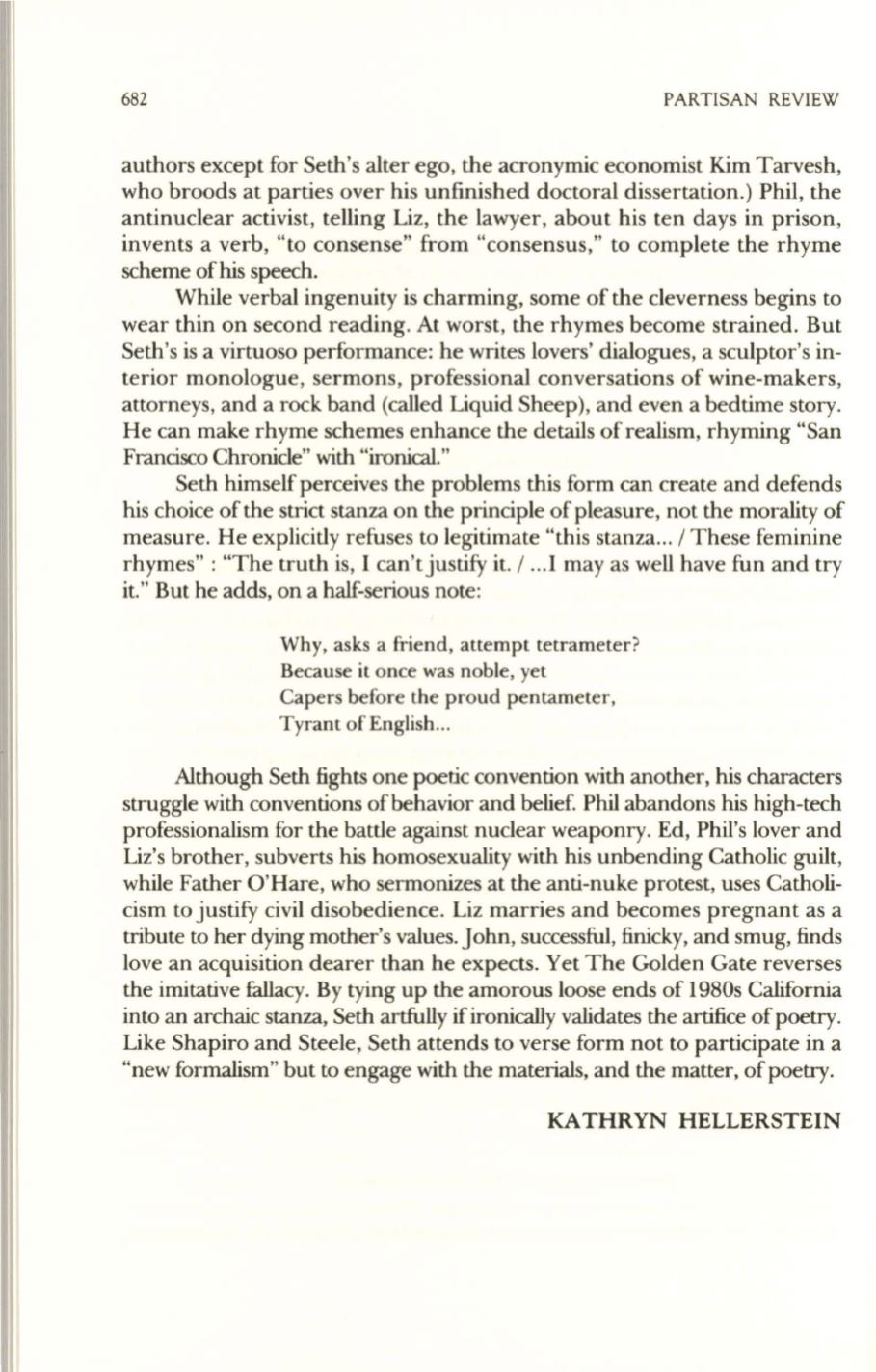
682
PARTISAN REVIEW
authors except for Seth's alter ego, the acronymic economist Kim Tarvesh,
who broods at parties over his unfinished doctoral dissertation.) Phil, the
antinuclear activist, telling Liz, the lawyer, about his ten days in prison,
invents a verb, "to consense" from "consensus," to complete the rhyme
scheme of his speech.
While verbal ingenuity is charming, some of the cleverness begins to
wear thin on second reading. At worst, the rhymes become strained. But
Seth's is a virtuoso performance: he writes lovers' dialogues, a sculptor's in–
terior monologue, sermons, professional conversations of wine-makers,
attorneys, and a rock band (called Liquid Sheep), and even a bedtime story.
He can make rhyme schemes enhance the details ofrealism, rhyming "San
Francisco Chronicle" with "ironical."
Seth himself perceives the problems this form can create and defends
his choice of the strict stanza on the principle of pleasure, not the morality of
measure. He explicitly refuses to legitimate "this stanza... / These feminine
rhymes" : "The truth is, I can't justify it. / ..
.1
may as well have fun and try
it." But he adds, on a half-serious note:
Why, asks a friend, attempt tetrameter?
Because it once was noble, yet
Capers before the proud pentameter,
Tyrant of English...
Although Seth fights one poetic convention with another, his characters
struggle with conventions of behavior and belief Phil abandons his high-tech
professionalism for the battle against nuclear weaponry. Ed, Phil's lover and
Liz's brother, subverts his homosexuality with his unbending Catholic guilt,
while Father O'Hare, who sermonizes at the anti-nuke protest, uses Catholi–
cism to justify civil disobedience. Liz marries and becomes pregnant as a
tribute to her dying mother's values. John, successful, finicky, and smug, finds
love an acquisition dearer than he expects. Yet The Golden Gate reverses
the imitative fallacy. By tying up the amorous loose ends of 1980s California
into an archaic stanza, Seth artfully
if
ironically validates the artifice of poetry.
Like Shapiro and Steele, Seth attends to verse form not to participate in a
"new formalism" but to engage with the materials, and the matter, of poetry.
KATHRYN HELLERSTEIN


